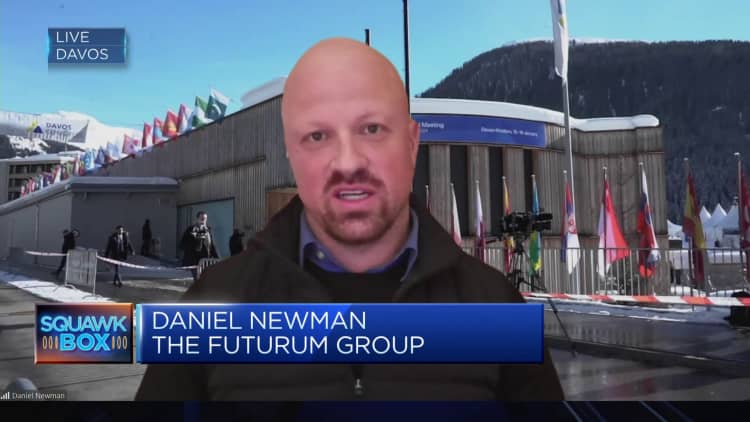Close-up gloved hands holding detailed microchip
Wong Yu Liang | Moment | Getty Images
Semiconductor companies such as Taiwanese semiconductor manufacturing company are at risk of water shortages due to advancing processing technology, S&P Global Ratings said in a report.
Semiconductor chips are found in everyday consumer devices, from smartphones to televisions. TSMC is the world’s largest contract chip manufacturer, producing the most advanced processors for companies like Nvidia AND Apple.
The chip-making industry is thirsty, as factories consume large amounts of water every day to cool machinery and ensure wafer sheets are free of dust or debris.
“There is a direct line between water use and chip sophistication, as factories use ultrapure water – fresh water treated to extremely high purity – to rinse wafers between each process. The more advanced the semiconductor, the more stages of the process, the more water consumed,” said S&P Global Ratings credit analyst Hins Li.
TSMC’s per-unit water consumption grew more than 35% after switching to 16-nanometer process nodes in 2015, S&P data reveals.
“We believe this is primarily due to the migration to advanced nodes, which require more fabrication processes,” S&P said. “Given TSMC’s dominance in advanced chip manufacturing, potential disruptions to water-related operations could disrupt the global technology supply chain.”

But the credit ratings firm noted that TSMC’s dominance allows the chip giant to “lock in end demand and offset lower unit sales with price increases.”
“If the company were able to maintain its technology leadership, the impact to TSMC’s business profile and profitability from any production volatility would likely be manageable,” S&P said.
The Taiwanese chip giant produces about 90% of the world’s advanced chips used for artificial intelligence and quantum computing applications.
TSMC could also focus on producing more advanced chips than mature ones, typically at a lower margin, when water supplies are limited, which S&P said could boost earnings.
The report finds that water consumption in the semiconductor industry is on track to increase by a mid-to-high single-digit percentage each year, driven by capacity expansion and demands for advancing process technology.
According to S&P, the world’s chipmakers already consume as much water as Hong Kong, a city with a population of 7.5 million.
“Water security will be an increasingly important factor in the credit profiles of semiconductor companies. Mismanagement of water resources could disrupt a company’s operations, harm financial performance and potentially jeopardize customer relationships,” he said. Li said.
“Meanwhile, climate change is increasing the rate of extreme weather, the frequency of droughts, and the volatility of precipitation, limiting chipmakers’ ability to manage production stability.”